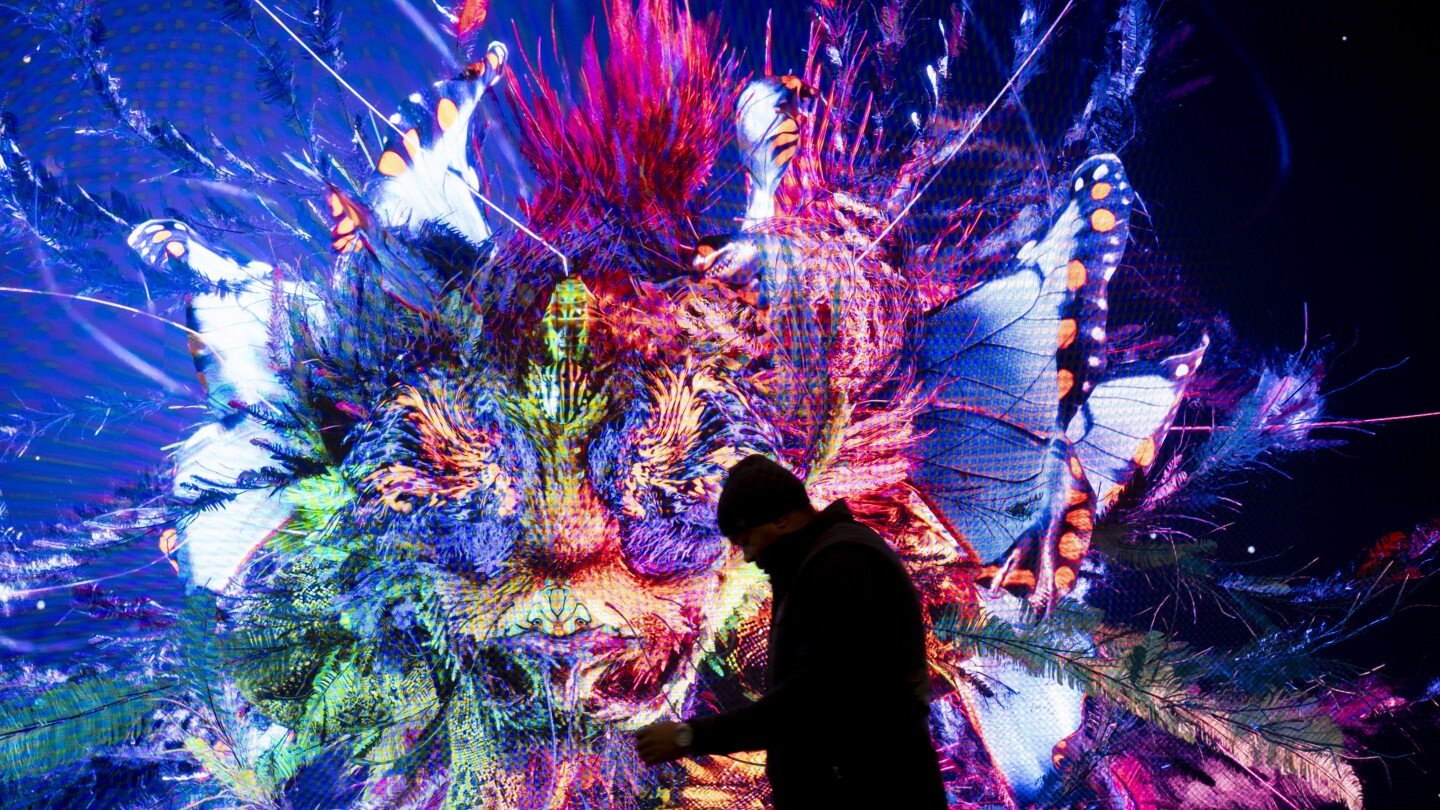DAVOS, Switzerland (news agencies) — Artificial intelligence is easily the biggest buzzword for world leaders and corporate bosses diving into big ideas at the World Economic Forum’s glitzy annual meeting in Davos. Breathtaking advances in generative AI stunned the world last year, and the elite crowd is angling to take advantage of its promise and minimize its risks.
In a sign of ChatGPT maker OpenAI’s skyrocketing profile, CEO Sam Altman is making his Davos debut to rock star crowds, with his benefactor, Microsoft CEO Satya Nadella, hot on his heels.
Illustrating AI’s geopolitical importance like few other technologies before it, the word was on the lips of world leaders from China to France. It was visible across the Swiss Alpine town and percolated through afterparties.
Here’s a look at the buzz:
The leadership drama at the AI world’s much-ballyhooed chatbot maker followed Altman and Nadella to the swanky Swiss snows.
Altman, who was suddenly fired last year by OpenAI’s board and then swiftly reinstated, said at a Bloomberg event that he was focused on getting a “great full board in place” and would consider changes down the road to the company’s unusual structure, which is governed by a nonprofit.
He deflected further questions, interrupting a question directed at an OpenAI executive accompanying him by saying, “Is really what you want to spend our time on the soap opera rather than what AGI is going to do?”
AGI is artificial general intelligence, a term for the better-than-human AI technology OpenAI is seeking to build. With that on the horizon, Altman talked technology and humanity on a panel Thursday.
Nadella, meanwhile, said, “I’m comfortable, I have no issues with any structure” of the operating model at OpenAI, the startup Microsoft has poured billions into. At another Bloomberg event, he noted that “what I would like is good governance and real stability.”
Forum founder Klaus Schwab quizzed the Microsoft CEO on whether world leaders were up to the task of creating AI regulations but steered well clear of questions about OpenAI’s governance.
From China to Europe, top officials staked their positions on AI as the world grapples with regulating the rapidly developing technology that has big implications for workplaces, elections and privacy.
The European Union has devised the world’s first comprehensive AI rules ahead of a busy election year, with AI-powered misinformation and disinformation the biggest risk to the global economy as it threatens to erode democracy and polarize society, according to a World Economic Forum report released last week.
Chinese Premier Li Qiang called AI “a double-edged sword.”
“Human beings must control the machines instead of having the machines control us,” he said in a speech Tuesday. “AI must be guided in a direction that is conducive to the progress of humanity, so there should be a redline in AI development — a red line that must not be crossed,” without elaborating.
China, one of the world’s centers of AI development, wants to “step up communication and cooperation with all parties” on improving global AI governance, Li said.
China has released interim regulations for managing generative AI, but the EU broke ground with its AI Act, which won a hard-fought political deal last month and awaits final sign-off.
European Commission President Ursula von der Leyen said AI is “a very significant opportunity, if used in a responsible way.”
She said “the global race is already on” to develop and adopt AI, and touted the 27-nation EU’s efforts, including the AI Act and a program pairing supercomputers with small and midsized businesses to train large AI models.
French President Emmanuel Macron said he’s a “strong believer” in AI and that his country is “an attractive and competitive country” for the industry. He played up France’s role in helping coordinate regulation on deepfake images and videos created with AI as well as plans to host a follow-up summit on AI safety after an inaugural gathering in Britain in October.
The letters “AI” were omnipresent along the Davos Promenade, where consulting firms and tech giants are among the groups that swoop onto the main drag each year, renting out shops and revamping them into showcase pavilions.









 United Arab Emirates Dirham Exchange Rate
United Arab Emirates Dirham Exchange Rate